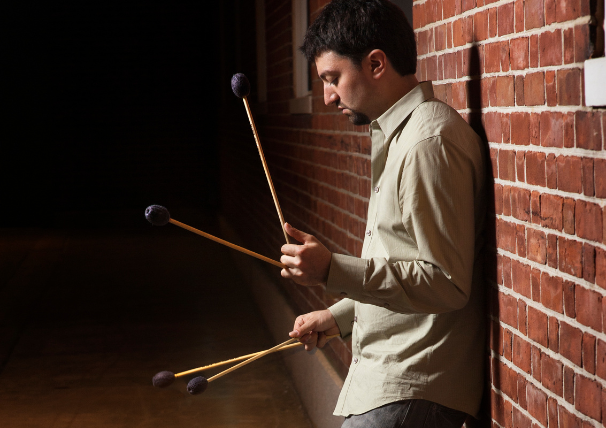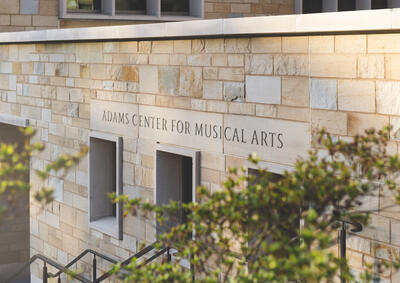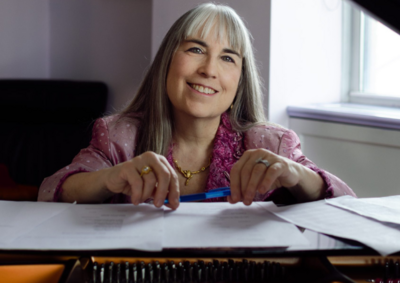Percussionist Ian Rosenbaum ’10MM ’11AD joins faculty at Peabody
Yale School of Music alum Ian Rosenbaum ’10MM ’11AD was appointed associate professor of percussion at the Peabody Conservatory of the Johns Hopkins University in July and began serving in that role at the start of this academic year. He succeeds Robert van Sice, YSM’s lecturer in percussion and Yale Percussion Group director, who retired from the Peabody faculty at the end of this past academic year having taught at the conservatory for 25 years.
“Over the past few decades, Prof. van Sice has created a world-class legacy at Peabody,” Rosenbaum said. “It is humbling and with a great deal of respect that I begin to teach at Peabody. … I’m excited to do what I can to build on the foundation that he left for me.”
Rosenbaum will work in the Peabody percussion program with several other YSM alums. “For the past few years,” he explained, “Prof. van Sice had been teaching alongside Jeff Stern ’16AD and Ji Su Jung ’19MM ’20AD — two fellow Peabody and Yale alums. I’m thrilled that they are continuing their relationship with Peabody this year.”
Additionally, YSM alums Jonny Allen ’13MM ’14AD, Victor Caccese ’13MM, and Terry Sweeney ’15MM, with whom Rosenbaum works in the quartet Sandbox Percussion, “will become part of the team at Peabody this year,” he said. “We will visit as a group multiple times each semester to teach, coach chamber music, and offer seminars that dissect our unique career path.”
Van Sice, who taught each of the above-mentioned percussionists, described Rosenbaum as an “insightful musician.”
“He’s very inquisitive,” van Sice said. “Ian’s a curious guy.”
Reflecting on the relationship between the Peabody and Yale School of Music percussion programs, Rosenbaum pointed out the chamber-music focus van Sice brings to his teaching — and that YSM has long made a primary focus of its curriculum.
“Peabody and Yale have had world-renowned percussion programs for many years,” Rosenbaum said, “and so much of that is due to Prof. van Sice. He started something that was unique [to percussion studies] back then but is now somewhat more common. He felt that his best path to teaching musicianship to percussionists lay through chamber music.”
Van Sice said Rosenbaum is “a modern-day version of me.”
“One thing that is a little different today,” Rosenbaum offered, “is that the paths to success have splintered. Whereas a few decades ago your best bet was winning a competition [or] joining an orchestra or other established institution, now there are a multitude of opportunities … If you can dream up a good idea — an ensemble, a school, a concert series, a commissioning project, or whatever makes you excited — I bet there is a way to realize it. The path can be difficult and can take a long time (plus a little bit of luck), but the opportunities are out there.
“My career,” Rosenbaum pointed out, “is that of a freelancer. I helped start a nonprofit (Sandbox), I play with a wide variety of artists in the classical music world and beyond, I make recordings, I commission new pieces, and so much more. I have found this kind of career to be incredibly rewarding, and as I look at the number of talented musicians coming out of music schools and compare that with the number of full-time jobs available in orchestras or universities, it seems to me more and more that this kind of bespoke DIY career is the right one for many kinds of people.”
Learn more about Ian Rosenbaum here.






